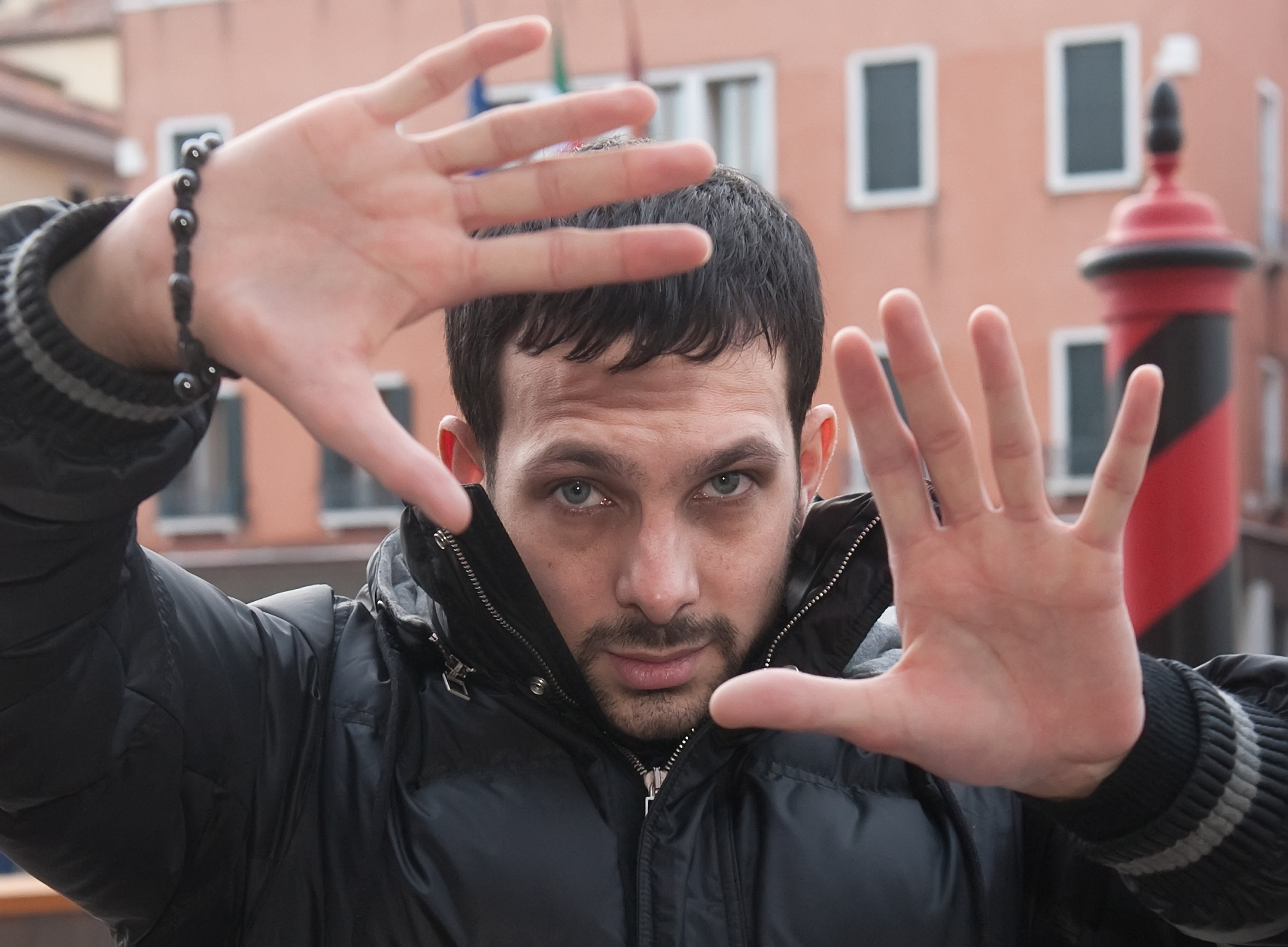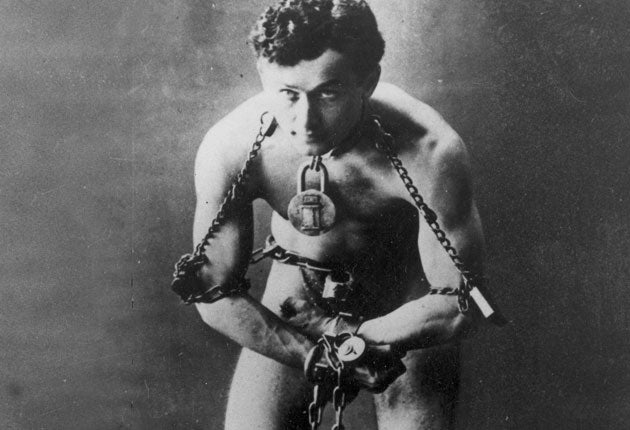Six Feet Under: The troubled history of magicians burying themselves alive
As British illusionist Dynamo prepares to bury himself under five tonnes of dirt in the name of magic, Annabel Nugent digs deep into the dark history of similar, sometimes fatal, stunts


Your support helps us to tell the story
From reproductive rights to climate change to Big Tech, The Independent is on the ground when the story is developing. Whether it's investigating the financials of Elon Musk's pro-Trump PAC or producing our latest documentary, 'The A Word', which shines a light on the American women fighting for reproductive rights, we know how important it is to parse out the facts from the messaging.
At such a critical moment in US history, we need reporters on the ground. Your donation allows us to keep sending journalists to speak to both sides of the story.
The Independent is trusted by Americans across the entire political spectrum. And unlike many other quality news outlets, we choose not to lock Americans out of our reporting and analysis with paywalls. We believe quality journalism should be available to everyone, paid for by those who can afford it.
Your support makes all the difference.Tonight, the magician known as Dynamo will bury himself alive. No coffin or casket. Just five tonnes of soil heaped on top of his body submerged six feet underground. From there, it’s up to him to claw himself out from beneath the suffocating mound of earth before he runs out of air. Tick tock.
Certainly, it’s a terrifying stunt. Picture it: the claustrophobia; the dirt in your lungs and in your eyes; the silence – but this is Dynamo we’re talking about. The Bradford-born illusionist, real name Steven Frayne, has made his name pulling off stunts like this. At 40 years old, he has walked across the Thames, dove headfirst from a Los Angeles skyscraper, passed through a glass window, and levitated 1,016ft in the air, his body hovering preternaturally between the glass prongs of the Shard. A bit of soil is no big whoop, you might think. But you’d be mistaken.
Buried alive stunts have a legendary but very short history. Frayne is believed to be only the fourth person in the last 100 years to attempt the escape – and if all goes to plan this evening (Thursday 14 December), he will be the first to succeed. Suddenly, floating above a skyscraper doesn’t seem so scary.
Harry Houdini performed variations on the buried alive stunt across his career. In 1915, the famous illusionist made a go of it near Santa Ana, California. He was buried, sans casket, in a pit of earth under which he almost suffocated. He went so far as to break the surface with his hand, but shortly after – exhausted and panicked – he fell unconscious and had to be rescued from the grave by his assistants. “The weight of the earth is killing,” he wrote in his diary.
Houdini’s subsequent attempts were not quite the same. In 1926, he sealed himself in a casket, which was submerged in the swimming pool of New York’s Hotel Shelton for 90 minutes. He managed to do so, he said, not by any trickery but simply by controlling his breath. Later that year, he replicated the stunt at the YMCA in Worcester, Massachusetts. He never did, however, manage to bury himself alive in dirt.
In 1949, Alan Alan – an escapologist known as “the British Houdini” – attempted the same feat. The magician knew his way around a dangerous stunt (he devised his trademark burning-rope act in the early Fifties) but this proved too difficult even for him. In 1949, Alan Alan replicated the 1915 Houdini stunt for Pathé News but got even less far than his American predecessor. His assistants had compacted the earth too tightly and he had to be urgently dug out moments from death.
Sadly, such stories of failure did not put off American magician Joseph Burrus who tragically died when he attempted the stunt in 1990. The 32-year-old, known as “the Amazing Joe”, had donned a white tuxedo for the Halloween stunt, for which he handcuffed and wrapped himself in chains before locking himself inside a plastic-and-glass coffin, which was then lowered into a 7ft-deep hole at a local amusement park over which approximately nine tonnes of cement and dirt was poured from a truck. Almost as soon as the hole was filled, however, the coffin shattered under the colossal weight, leaving rescuers frantically trying to exhume the casket as trick-or-treaters watched on in horror. Efforts to revive Burrus were unsuccessful.
Most recently, British escapologist Antony Britton was unable to free himself when he attempted the stunt in 2015 – while wearing handcuffs. Rescuers on site in West Yorkshire were forced to step in after nine minutes passed without any sign of life. “I almost died,” he said. “I was just seconds away from death. It was scary. The pressure of the soil was crushing around me. Even when I found an air pocket, when I exhaled, the soil around me was crushing me even more. I could feel myself losing consciousness and there was nothing I could do. I was pretty much dying.” Thankfully, rescuers were able to reach him before his air ran out.

There have been less intense interpretations of the stunt – but even those proved incredibly gruelling. Last month, the king of YouTube MrBeast (aka Jimmy Donaldson) buried himself alive in a transparent coffin for seven days to the delight of his 218 million subscribers. Entombed with him were sufficient food and water to last the week, as well as cameras and a walkie-talkie so that he could stay in contact with his crew above ground. None of this, however, saved the 25-year-old from the sheer mental exhaustion he faced throughout the challenge. At several moments during the stunt, including when he was finally freed from the casket, Donaldson broke down into tears.
Given all this then – the failed attempts, fatalities and near-misses – it is wise that Frayne told The Times that he is not going into Thursday’s stunt “lightly”. The magician has been practising in the run-up to the televised event, using his bathtub to replicate the circumstances the best he can. (He showed the publication a video of himself lying under a mound of earth, getting buckets of dirt poured over his head.) The stunt has an emotional component, too. “Being buried alive is about laying to rest parts of me that I want to move on from,” said Frayne. First, though, he’ll have to get out alive.
Join our commenting forum
Join thought-provoking conversations, follow other Independent readers and see their replies
Comments